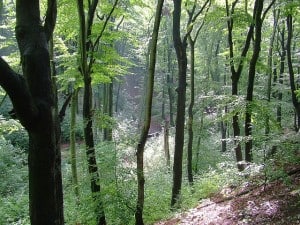
By: Elizabeth Renter,
Natural Society.
Anyone who loves nature has likely been touched deeply at some point by ‘her’ magnificent and sometimes brutal ways. From seeing sick or crippled animals left behind for the better overall health of the herd to witnessing man’s greed-motivated destruction of the rain forest—nature isn’t always nice. But few of us then become motivated to do something significant about it. One man, Jadav Payeng, took a harsh lesson in nature’s sometimes-punishing ways and turned it into a sprawling forest.
According to the Huffington Post, a 16-year old Payeng stumbled across a number of dying snakes on a barren sandbar near his home in 1979. A flood had washed the snakes onto the sand where they died in the heat with no shade to protect them.
“I sat down and wept over their lifeless forms,” Payeng told the Times of India.
But rather than dry his cheeks and continue on as he was, Payeng decided to do something significant. First, he asked officials for help.
“It was carnage,” he said. “I alerted the forest department and asked them if they could grow trees there. They said nothing would grow there. Instead, they asked me to try growing bamboo. It was painful, but I did it. There was nobody to help me.”
What began as a grove of bamboo grew into something much, much bigger.
Now, 30 years later, that sandbar is a 1,360 acre forest. Payeng created an ecosystem—complete with several thousand varieties of trees, as well as birds, deer, apes, rhino, tigers, and a herd of about 100 elephants that spends six months of every year there.
Read: Forest Bathing – How Nature can Make You Healthy and Smart
As any gardener can imagine, creating a forest where there was once only sand was quite a project. As the Times of India reports:
He watered the plants morning and evening and pruned them. After a few years, the sandbar was transformed into a bamboo thicket. “I then decided to grow proper trees. I collected and planted them. I also transported red ants from my village, and was stung many times. Red ants change the soil’s properties . That was an experience,” Payeng says, laughing.
The forest is called the Molai Woods, after Payeng’s nickname. Payeng still lives there, in a hut with his wife and children, where he can tend the forest and make a modest living selling milk.
“Nature has made a food chain; why can’t we stick to it? Who would protect these animals if we, as superior beings, start hunting them?” said the man who was motivated to change his corner of the world after one pivotal moment in his teenage years.
Credits:
Natural Society
Image


